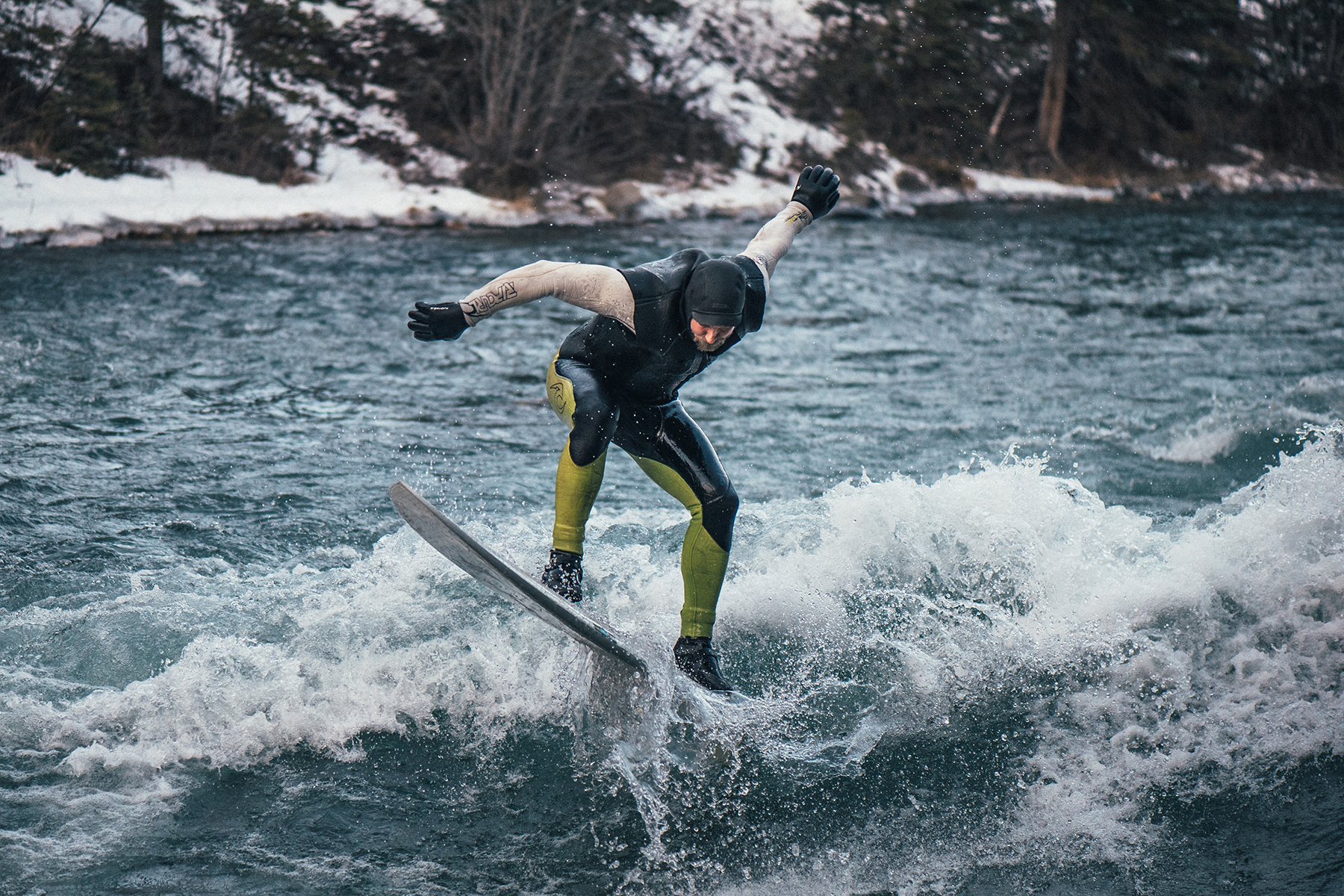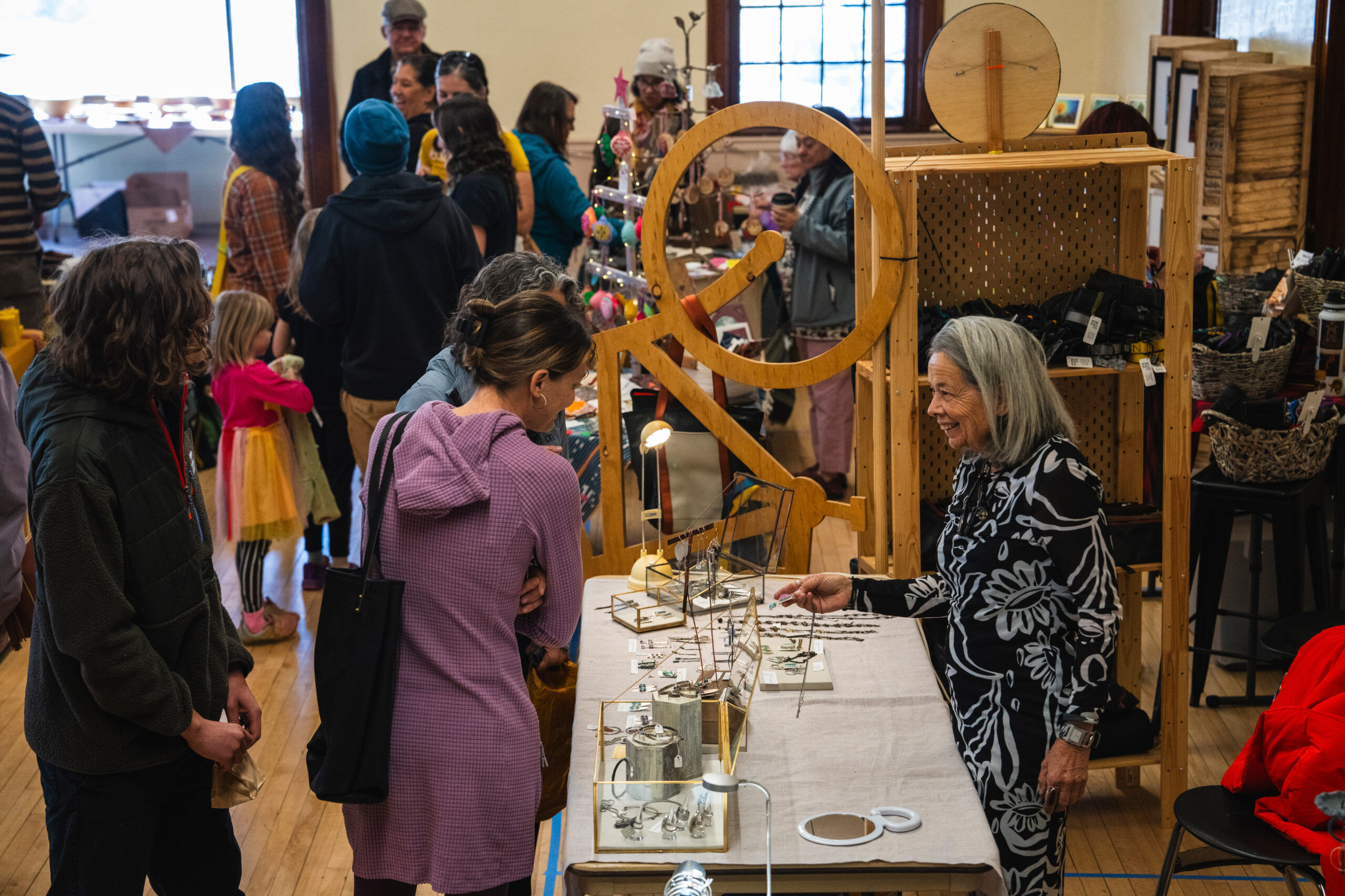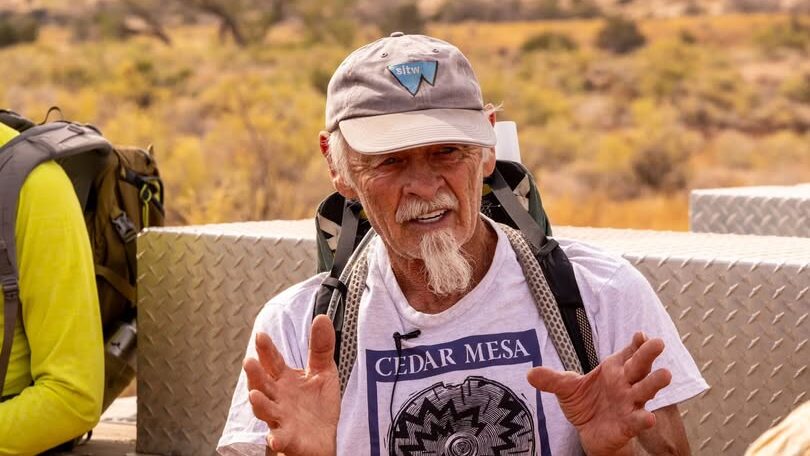Some information may be outdated.
During the cold, dark, winter days of December and January on the Kananaskis River in the landlocked Canadian Rockies near Calgary, filmmaker Desiree Bilon created a film about surfing.
“Surf Anywhere” is Bilon’s 10-minute film about a group who surfs rivers all year round in Canada. Natural river formations often cause standing waves to form, allowing for surfing hundreds of miles from any ocean. In “Surf Anywhere,” the group sculpts “a really great wave” by moving rocks around in the river, Bilon said.
River surfing started in Munich, Germany, in the 1970s, eventually spreading as a sport enjoyed around the world, Bilon said.
“Surf Anywhere” is one of several short and full-length films featured at the fourth annual Moab International Film Festival, which runs from Saturday, March 4, through Monday, March 6, at Star Hall, 159 E. Center St.
“People will want to see this film because these are great surfers, surfing a great wave, 1,000 kilometers from the nearest ocean, in the winter, in sub-zero temperatures,” Bilon said.
“Ourglass,” another short film directed by Alex Zajicek and Deonta Arnold was created in just 48 hours. The two young men met in film school in the San Francisco Bay Area, and made the film as part of a 48-hour film festival, where in cities across the nation, participants write, shoot and edit a piece within 48 hours.
The 48-hour film festival requires filmmakers to pull genres out of a hat to learn what kind of film they are to make. Zajicek and Arnold picked “sci-fi.”
Zajicek described “Ourglass” as a sci-fi comedy, about two siblings who find an hourglass in the woods, which changes their lives.
Nathan Wynn and Denise Felaar founded the Moab International Film Festival with the mission of showing independent films that promote positive change, Wynn said.
“There will be two feature films a night, and sometimes a shorter film (time permitting),” Wynn said.
Opening the festival is “Gun Runners,” a film about two northern Kenyan warriors who trade their AK-47 weapons for running shoes. It’s a story of “retribution and reform, friendship and rivalry,” according to the festival’s website.
The National Science Foundation helped fund “Antarctica Edge 70 Degrees South,” a film about climate change. The film follows a team of scientists who study a changing ocean.
Revisit the women’s liberation movement, from 1966 to 1971, by watching the film “She’s Beautiful When She’s Angry.” The documentary includes footage of poetry readings, women’s rock bands and impromptu protests. The film makes a connection between that era and the current “war on women” and makes a case for reviving feminism as a mass movement.
In “Fractured Land,” an oil and gas representative tells filmmakers Fiona Rayher and Damien Gillis that “deep down, we’re all fractured.” The film shows the dilemma of Caleb Behn, a young indigenous leader and lawyer who must decide how to deal with an oil and gas industry that is threatening traditional practices and livelihoods, while also providing jobs – including jobs for his parents. Ultimately, “Fractured Land” offers optimism and empowerment, according to the festival’s website.
In “Baobabs Between Land and Sea,” Cyrille Cornu and Wilfried Ramahafaly travel by pirogue – a long, narrow canoe made from a single tree trunk – to explore 400 kilometers of wild and isolated coastline in southwest Madagascar, where these giant trees are being threatened by deforestation.
Other films include the award-winning “62 Years,” “Little Boxes” and “Martin’s Boat.”
Filmmakers Alex Zajicek and Deonta Arnold will be present to answer questions after the screening of their film. Bilon said she also hopes to attend the festival to introduce her film “Surf Anywhere.”
March 4-6 festival showcases indie movies from around the world
What: Moab International Film Festival
When: Saturday, March 4, through Monday, March 6
Where: Star Hall, 159 E. Center St.
Cost: $30 for the entire weekend of films, or $5 per film
Information: www.moabfilmfestival.org
Appreciate the coverage? Help keep local news alive.
Chip in to support the Moab Sun News.





